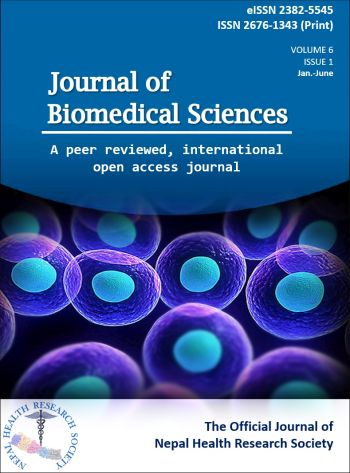血浆凝胶酶原减少可促进食管鳞状细胞癌的纤维化肿瘤微环境并增强化放疗耐药性
IF 9
2区 医学
Q1 CELL BIOLOGY
引用次数: 0
摘要
间质纤维化与食管鳞状细胞癌(ESCC)患者的耐药性和生存率低下密切相关。血浆凝胶蛋白(pGSN)是一种血清中含量丰富的蛋白质,它的低表达与炎症和纤维化相关。在此,我们评估了不同阶段癌症患者中 pGSN 的表达和治疗反应,并阐明了其中的分子机制,以深入了解 ESCC 的治疗策略。通过酶联免疫吸附分析测定了ESCC患者的循环pGSN水平,并通过免疫组化染色分析了肿瘤组织芯片。研究人员进行了基于细胞的研究,以探讨癌症行为和分子机制,并利用小鼠模型研究了 pGSN 诱导的体内抑瘤效应。在ESCC进展过程中,循环中pGSN的表达明显下降,pGSN的低表达与治疗反应差和生存率低相关。甲基化特异性PCR分析证实,pGSN表达降低的部分原因是编码pGSN的基因GSN启动子发生了高甲基化。重要的是,基于细胞的免疫沉淀和蛋白质稳定性测定证明,pGSN 与致癌基因 tenascin-C (TNC) 竞争整合素 αvβ3 的结合和降解,揭示了 pGSN 表达的减少会导致促进癌细胞和成纤维细胞中的致癌信号转导。此外,过表达 pGSN 会导致 TNC 表达减弱和癌相关成纤维细胞(CAF)失活,从而抑制小鼠的肿瘤生长。我们的研究结果表明,GSN甲基化会导致pGSN分泌减少,从而导致整合素失调、致癌TNC激活和CAF形成。这些发现凸显了 pGSN 在 ESCC 的耐药性和纤维化肿瘤微环境中的作用。本文章由计算机程序翻译,如有差异,请以英文原文为准。
Decreased plasma gelsolin fosters a fibrotic tumor microenvironment and promotes chemoradiotherapy resistance in esophageal squamous cell carcinoma
Stromal fibrosis is highly associated with therapeutic resistance and poor survival in esophageal squamous cell carcinoma (ESCC) patients. Low expression of plasma gelsolin (pGSN), a serum abundant protein, has been found to correlate with inflammation and fibrosis. Here, we evaluated pGSN expression in patients with different stages of cancer and therapeutic responses, and delineated the molecular mechanisms involved to gain insight into therapeutic strategies for ESCC. Circulating pGSN level in ESCC patients was determined by enzyme-linked immunosorbent assay analysis, and the tissue microarray of tumors was analyzed by immunohistochemistry staining. Cell-based studies were performed to investigate cancer behaviors and molecular mechanisms, and mouse models were used to examine the pGSN-induced tumor suppressive effects in vivo. Circulating pGSN expression is distinctively decreased during ESCC progression, and low pGSN expression correlates with poor therapeutic responses and poor survival. Methylation-specific PCR analysis confirmed that decreased pGSN expression is partly attributed to the hypermethylation of the GSN promoter, the gene encoding pGSN. Importantly, cell-based immunoprecipitation and protein stability assays demonstrated that pGSN competes with oncogenic tenascin-C (TNC) for the binding and degradation of integrin αvβ3, revealing that decreased pGSN expression leads to the promotion of oncogenic signaling transduction in cancer cells and fibroblasts. Furthermore, overexpression of pGSN caused the attenuation of TNC expression and inactivation of cancer-associated fibroblast (CAF), thereby leading to tumor growth inhibition in mice. Our results demonstrated that GSN methylation causes decreased secretion of pGSN, leading to integrin dysregulation, oncogenic TNC activation, and CAF formation. These findings highlight the role of pGSN in therapeutic resistance and the fibrotic tumor microenvironment of ESCC.
求助全文
通过发布文献求助,成功后即可免费获取论文全文。
去求助
来源期刊

Journal of Biomedical Science
医学-医学:研究与实验
CiteScore
18.50
自引率
0.90%
发文量
95
审稿时长
1 months
期刊介绍:
The Journal of Biomedical Science is an open access, peer-reviewed journal that focuses on fundamental and molecular aspects of basic medical sciences. It emphasizes molecular studies of biomedical problems and mechanisms. The National Science and Technology Council (NSTC), Taiwan supports the journal and covers the publication costs for accepted articles. The journal aims to provide an international platform for interdisciplinary discussions and contribute to the advancement of medicine. It benefits both readers and authors by accelerating the dissemination of research information and providing maximum access to scholarly communication. All articles published in the Journal of Biomedical Science are included in various databases such as Biological Abstracts, BIOSIS, CABI, CAS, Citebase, Current contents, DOAJ, Embase, EmBiology, and Global Health, among others.
 求助内容:
求助内容: 应助结果提醒方式:
应助结果提醒方式:


